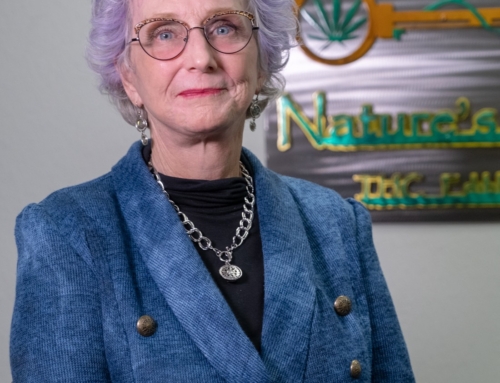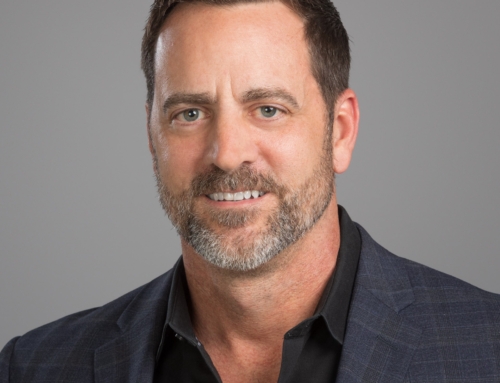After graduating Loyola Law School, David Welch founded boutique law firm, D|R Welch, which primarily services the cannabis industry. David has represented the largest public companies as well as many recognizable brands including Barneys New York. He primarily represents companies in intellectual property, litigation, and compliance with governmental regulations.
In addition to his legal work, David has founded a nonprofit organization, Peace Tree, which provides pro bono legal and social services to non-violent drug offenders.
Can you share with us the story about what brought you into the Cannabis industry?
Before representing the cannabis industry, I was a criminal defense attorney. In the summer of 2008, my office was on the second floor of the dilapidated two-story office building directly across the street from the LA county jail.
One evening, I received a call from a friend’s sister that he was in custody at the Long Beach police department. He had sold an ounce of marijuana to an undercover cop. I bailed him out and offered to represent him. He opted to hire a local attorney instead. When he went to court, despite bailing out, he was immediately remanded to custody. I later learned that he was already on felony probation for pleading guilty to a “possession of marijuana for sale” 8 months earlier and had at least 3 years of prison hanging over his head.
He spent the next few weeks in jail while his attorney attempted to negotiate a plea deal. He eventually pled guilty. A week later, I got another call from his sister. She told me that the attorney refused to go to court unless he was paid an additional $5,000. Neither my friend nor his family could afford that fee. She asked that I substitute in and argue for my friend. I prepared for two weeks and argued that my friend should not be sent to prison because: he had a graduate degree; his crime was non-violent; and “it was just weed.” The Judge saw it differently, my friend was ordered to serve 3 years in prison. They dragged him away just as quickly as they brought him into the courtroom. That morning I left the courtroom knowing I wouldn’t see my friend anytime for years.
After that hearing I researched further into the cannabis industry. I learned that at the same time my friend was sent to prison for selling an ounce of cannabis, a small handful of privileged “businessmen” and “businesswomen” were selling hundreds of pounds of cannabis “legally.” The only difference between the business owners and my friend was that the business owners had the money to hire attorneys and lobbyist who would apply for their license, at times sue, and lobby until progressive cities like West Hollywood, Moro Bay and San Francisco issued them licenses. However, cities like Long Beach, Compton and Santa Ana, where a majority of their citizens were low-income, had no licensing regulation. Instead, the cannabis “business owners,” in these low-income cities, were subject to arrest, conviction and imprisonment for the same activity as their wealthier counterparts.
Since that day in Long Beach, when the sheriff took my friend to prison, my practice and my professional focus has been to provide legal counsel and guidance to cannabis companies. My hope is that through our work and the advancement of cannabis legalization, we are able to assist all cannaprenuers to increase the commercial normalization of cannabis, increase its legal availability in all communities and eliminate the economic disparity and disparate treatment between the wealthy and not wealthy.
What is your main thesis for investing time and/or money into the Cannabis industry?
It’s only worth investing time and money into the cannabis industry if you have a truly unique product and you don’t have an inflated ego. The number of cannabis companies has ballooned over the last two years. At times I feel like there are more cannabis companies selling joints than breweries selling beer. Because of overcrowding, consumers are overwhelmed with choices and only those companies with large advertising budgets are able to create distinctiveness in their brand and obtain a share of the market. Ironically, the brands who lead the sales board are also burning through their cash in advertisement and marketing buys leaving little profit, if any. A truly distinctive company can grab the consumer’s attention and generate sales without the need to spend all its profits on ad buys and marketing.
Maintaining a healthy ego is the second key to success. Many cannaprenuers think their product is unique. I’ve nearly seen all of it. The female-centric brand, the low THC brand and the female-centric low THC brand. I can’t tell you how many “master growers” I’ve met. Many times, the brands are not distinctive or unique. The “master grower” is many times just a gardener and often a novice at best. To truly succeed in this industry a cannaprenuer needs to step back and ask the hard question: is my product truly unique or is it just the same old song in a different key?
In your view, what are the 3 best ways investors can play the Cannabis boom?
Growing cannabis isn’t the only way to become lucrative with cannabis. There are a host of service industries that are thriving because of the growth in cannabis companies. Real estate, point of sales systems, and cannabis cultivation technologies are all some of the industries with exponential growth. As cannabis commoditizes, cannabis growers, processors, and sellers are seeking the technology or equipment that will provide them the edge over the competition and increase their profits. Whether it’s a better fertilizer or more efficient water pump, commercial outdoor growers are looking for ways to save money and increase their cannabis plants yields. Cannabis storefronts are always looking for a better point of sales and inventory management system to eliminate loss and speed up a sales transaction. Indoor growers are still looking for the perfect LED replacement for their metal halide bulbs. If you’re looking to make real money in the cannabis space, stop looking at the plant. Look above it; look below it; and look around it.
What do you see as the top challenge facing Cannabis companies today?
Cannabis companies today are challenged with a lack of liquidity; over saturation of product on the market; over taxation and a lack of commercial financing. To make things worse, the legal market is still fighting an uphill battle against illegal cultivators, illegal manufacturers, and illegal dispensaries who are not taxed nor follow regulatory safety regulations like product testing.
Many of the larger companies are buying assets and investing in a future stock value. The conventional wisdom amongst the larger cannabis companies is that the assets being invested in or bought today will turn a profit when the illegal operators are closed, taxes are lowered or cannabis becomes federally legal. Until that day, legal cannabis companies, big and small, will continue to struggle.









![“The potential to help people [in this industry] is enormous, but there’s still so much to learn.” – Ramon Alarcon, Witi](https://lakesideremedy.com/wp-content/uploads/2020/12/1thj5ekUyxQ69iLz1JJyODg-scaled-e1607882756286-500x383.jpeg)
